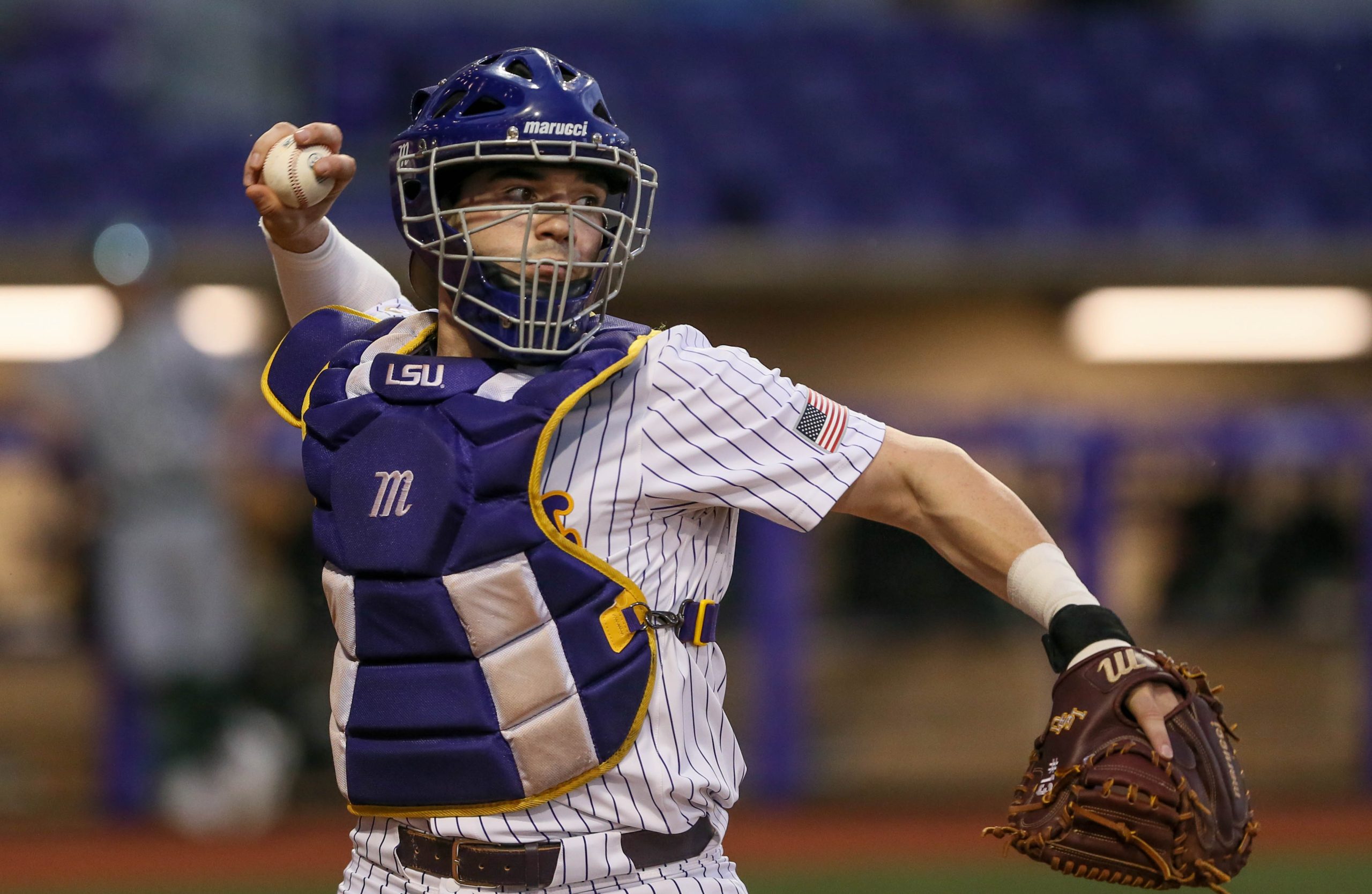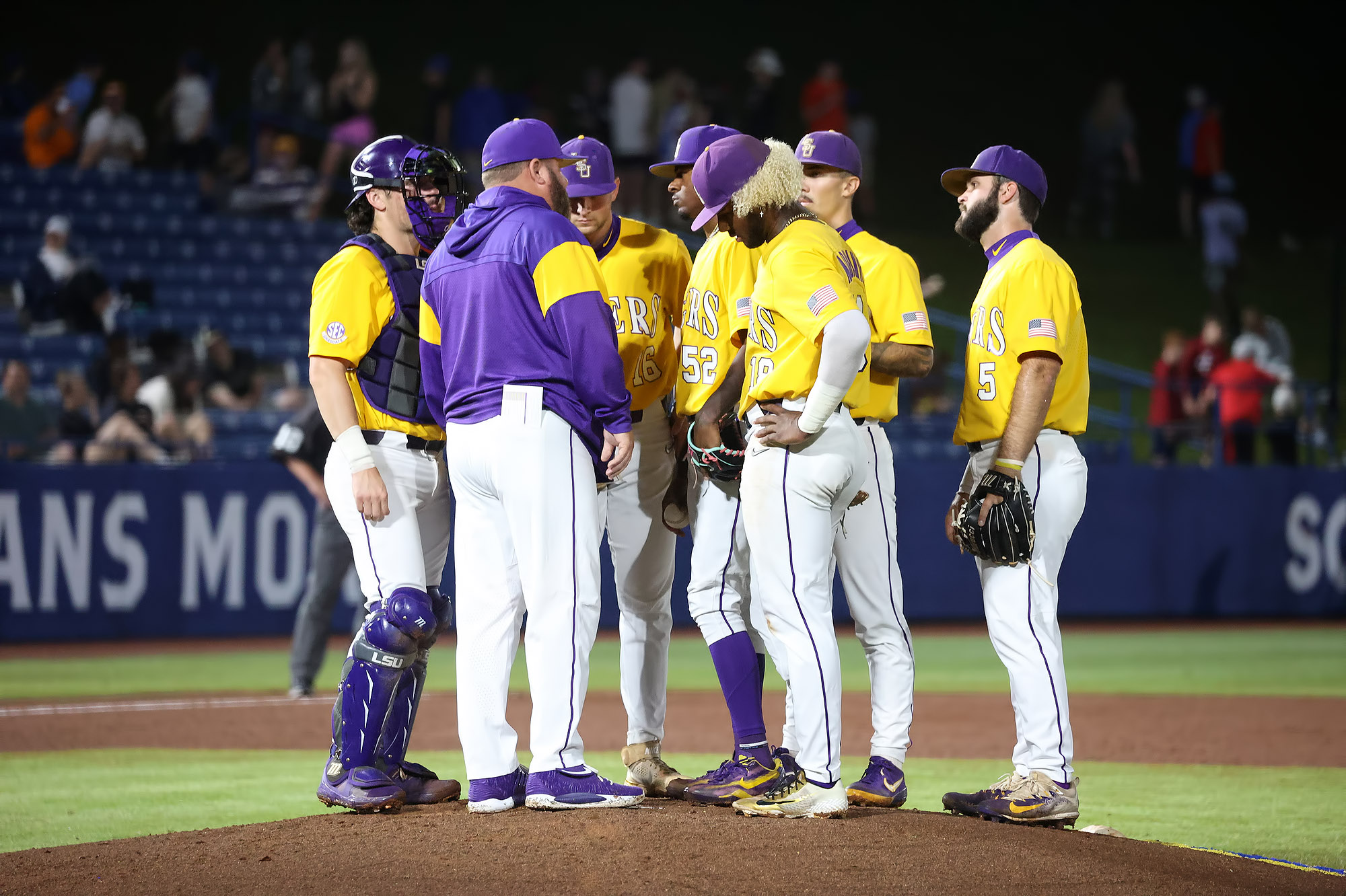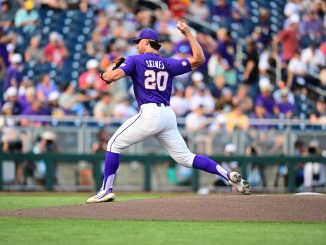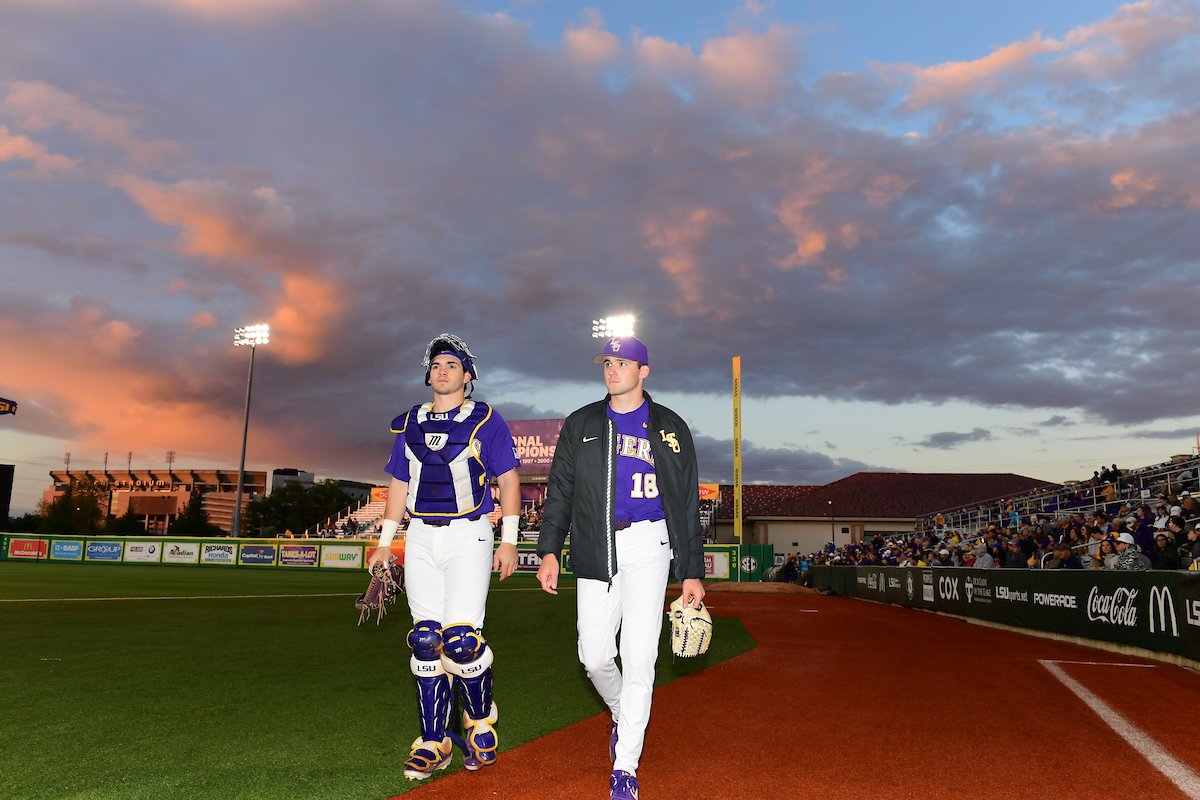
Major League Baseball’s coronavirus-shortened draft concluded last Thursday evening without LSU catcher Saul Garza’s name being called.
With the draft reduced for the first time from 40 to five rounds, the odds of Garza being drafted appeared long although the 6-foot-3, 225-pounder maintained a sense of optimism after fielding calls from several major league teams the week leading up to the June 10-11 event.
A total of 10 catchers, including seven collegiate players and LSU signee Drew Romo of The Woodlands, Texas, were taken in the first four rounds, but none thereafter.
In the days that followed, Garza decided to lean his family for support during his time of uncertainty. After previously being selected by St. Louis in the 32nd round in 2017 out of Edinburg North High (Texas) and again by the Kansas City Royals in the 31st round following his junior season at LSU, he contemplated returning to Baton Rouge for another season or signing a free agent contract with the Royals.
Because of a familiarity with Kansas City’s organization, the ability for gainful instruction this summer despite MLB’s minor league system being currently being shut down, Garza signed a free agent deal of $20,000 and will eventually report to the Royals spring training complex in Surprise, Ariz. for a 3 ½ month instructional league.
“This has been my dream since I was 7-8 years old,” said the 22-year-old Garza, who will fly Saturday to Kansas City with his parents and meet with team’s front office personnel and stage a contract signing for the area’s media. “I grew up with two brothers and was always outside, messing around and throwing a baseball and had a bat in my hand. I had the mindset that I wanted to play professional baseball. I’m very fortunate to have my career play out this long and blessed to have the opportunity.”
Garza’s journey to Kansas City’s organization was a long, winding road that began in his hometown of Edinburg, Texas, continued at Howard College in Big Spring, Texas before arriving at LSU as a potential power source (he hit 23 homers in junior college) and steady presence behind the plate.
He was limited to 64 games during his career at LSU, first sidelined by a torn meniscus in 2019, with the coronavirus pandemic stopping the 2020 season after only 17 games in mid-March.
“The pandemic happened and there wasn’t anything we could really do about it,” Garza said. “I was confident the next few months of this season we were going to hit a different gear and play really good baseball.”
One of the driving forces in Garza wanting to return for his junior season, turning down the Royals in the process, was the finish to his first season at LSU where he batted .425 during the postseason with six doubles and seven RBIs.
Garza was named to the Southeastern Conference’s All-Tournament team after batting .474 with four doubles and an RBI. He maintained that hot streak during the Baton Rouge regional and was named co-Outstanding Player for hitting .500 with a pair of doubles and driving in six runs.
For the season, Garza hit .303 with 10 doubles, five homers with 27 RBIs.
“That was special,” Garza said of his regional performance in three straight games at jammed-packed Alex Box Stadium. “The crowds at Alex Box were electric. It was a great regional. I got to grow and bond with my teammates. I felt like this year’s team had a chance to make it to Omaha and how special that would have been.
“I got comfortable and was able to show people my style of play. That’s the reason after last year’s draft, I sat with the coaches and decided to come back. With a full year of being healthy and playing baseball, that was going to be good for me and boost my draft stock and help lead the team to Omaha.”
LSU was 12-5 and preparing to travel to Ole Miss for the start of Southeastern Conference play when the COVID-19 health scare arose.
Garza played in 14 games with a .229 average but was first in homers (three) and tied for the team lead in RBIs (12).
Two weeks later the NCAA granted an additional year of eligibility for all athletes in spring sports. But instead of returning for a second junior season, Garza remained steadfast in his beliefs that a MLB team would select him, even in the truncated draft.
“I thought there were a couple of teams that talked to me and they seemed like it could be promising,” Garza said. “I wasn’t exactly sure what was going to happen. I’ve been through the draft a couple of times and know the way it kind of works. I tried not to get my hopes up too much. I was by my phone and watching the draft in case it did happen.”
Garza acknowledged receiving several calls in the latter stages of the draft, some of whom were trying to jockey for position in the event he went undrafted.
With MLB organizations not allowed to contact draft-eligible players not selected until 9 a.m. Sunday, Garza admitted oversleeping when he awoke later the morning to discover several missed calls and unread text messages.
One of them was from Kansas City, along with six to seven other organizations. Garza immediately returned a message to Kansas City, an organization that he fostered a strong bond the year before when the Royals drafted him.
“They were a team that I felt extremely comfortable with,” he said. “I had been getting calls from the organization every day, so it’s good to be a part of an organization that I know cares about me. From the start I felt Kansas City had the upper hand. I thought it was a great fit.”
The only thing missing, though, was the growing speculation there wouldn’t be a minor league season for Garza, a component Kansas City replaced for its prospects with instructional league play.
With major league baseball still undecided whether it will conduct a 2020 season, its minor leagues system remains in a similar holding pattern.
LSU baseball coach Paul Mainieri and his staff made their pitch for keep Garza, asking him to return and bolster his 2021 draft status and avoid the potential of having to sit idle in the event MLB doesn’t have minor league play.
“They let me know my options, they would have loved to have had me back,” Garza said. “My options were to begin my minor league career or go back to LSU, get reps in the fall against top-notch SEC pitching, continue to grow as a player and really only miss the first 1 ½ months of professional baseball next spring if there wasn’t going to be a minor league this season.
“Having to tell coach Mainieri that I was signing was a tough pill to swallow, but he had a lot of respect for the decision we made as a family. Kansas City let me know they see the potential in me to one day hopefully be a big leaguer and that’s something that in my eyes, I take extremely serious. The ultimate goal for me is to be a major leaguer, not just to play professional baseball. But to make it to the top.”




Be the first to comment